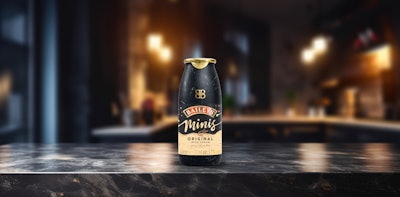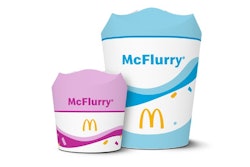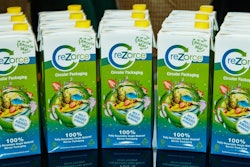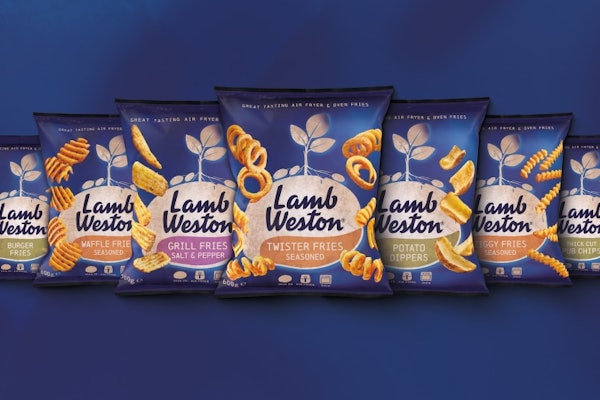London-based Diageo—the maker of Johnnie Walker Scotch Whisky, Don Julio Tequila, and Guinness—recently tested paper-based bottles for Baileys, the Original Irish Cream Liqueur. Made of 90% paper and including a thin PET liner, the bottles are designed for recycling in standard paper streams and do not require the consumer to separate the PET liner when disposing.
The packages were made by way of Dry Molded Fiber technology, invented by Sweden’s PulPac and covered by multiple patents. Completing the noteworthy package are an induction-sealed foil lid and a pressure-sensitive paper label with hot-stamped gold used for the gold double B symbol at the top of the bottle. The trial took place May 25- 26 at Time Out Fest in Barcelona, Spain, where 2,000 mini Baileys containers each holding 80 mL were made available to those who attended the food fest.
To understand why Dry Molded Fiber is potentially such a game changer it helps to point out that the tried and true method of forming fiber into packaging—think egg cartons, for example—involves considerable time, energy, and water. It begins with paper, typically recycled materials such as newspapers, paperboard, and other types of paper waste. These are pulped to break them down into individual fibers, and the pulp is then mixed with water to create a slurry. This slurry is poured into a mold designed to create a consistent shape and size for the egg cartons. Next is a press, which applies pressure to remove excess water from the pulp. Last comes drying to remove any remaining moisture.
This is a slow and resource-intensive process, one that Dry Molded Fiber technology is able to sidestep. PulPac claims that Dry Molded Fiber is 10 times faster than conventional wet molded fiber methods. Once it gets fully scaled up, say its backers, it will be a way of converting renewable plant fibers into fully recyclable packaging that can replace single-use plastic at a cost that is competitive. Other benefits include low energy use and almost no water demand in the molding process. This results in a package with strong sustainability credentials. Initial screening Life Cycle Assessment data for the Baileys bottle suggests it will have 25% lower CO2 emissions than the current rPET package.
























